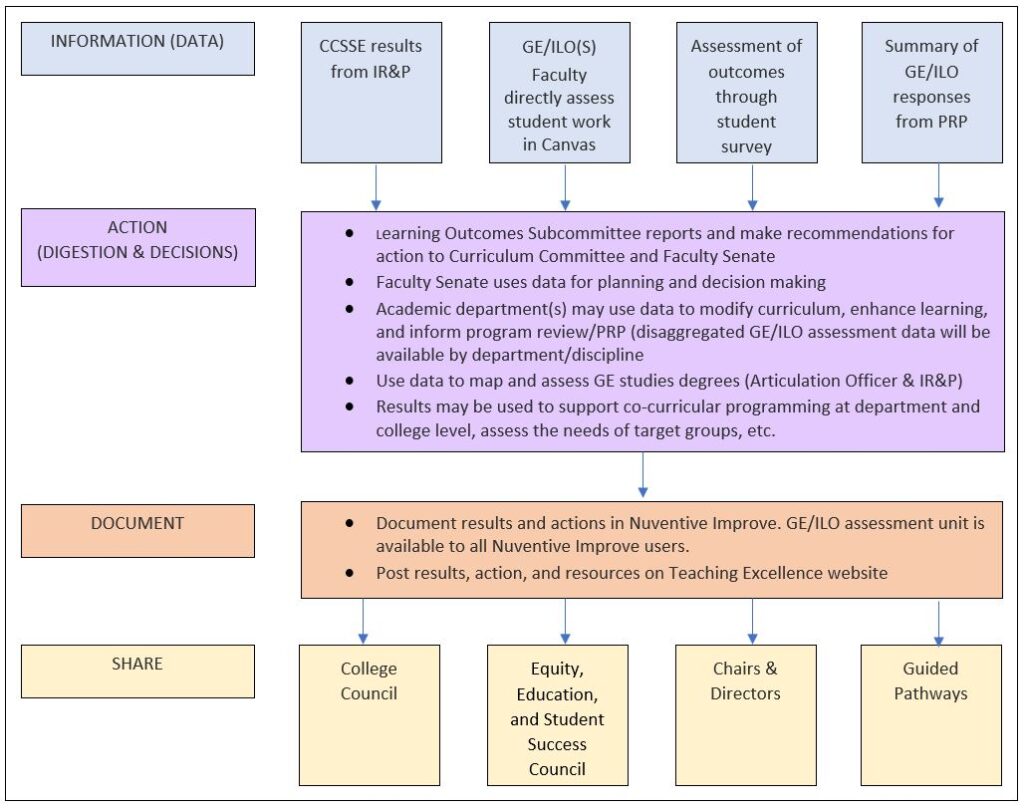The College Outcomes – Institutional and General Education
The four college outcomes listed below represent a set of abilities and qualities desired of students earning either a degree or certificate from Palomar College. These outcomes are aligned to course and program learning outcomes and are assessed and analyzed at the institutional level. We refer to these college outcomes as Institutional Learning Outcomes. GE-ILO brief definitions
- Communication
- Computation
- Creative, Critical, and Analytical Thinking
- Community, Multicultural/Global Consciousness and Responsibility
The College has two additional college outcomes that apply to degrees (AA/AS/AT) only: foundational knowledge of the discipline and integrative learning. These two outcomes are assessed at the program level. Students earning a Palomar degree are expected to achieve the following set of General Education Learning Outcomes:
- Foundational Knowledge of the Discipline – Apply foundational methods of inquiry and analysis of diverse disciplines. Articulated through GE areas B-D as well as specific certificate/degree learning outcomes (a.k.a program outcomes)
- Integrative Learning – Synthesis and advanced accomplishment across general and specialized studies (e.g. learning communities, service learning, work-based learning, engagement through the arts)
Course and Program Outcomes
Goals
All active courses & programs practice ongoing assessment. Course and program outcomes must be assessed at least once every 3 years in order to align with the College’s program review cycles. The College’s goals for assessment of course and program outcomes are:
- All courses and programs have at least 2 outcomes defined in Nuventive Improve
- All active course and program outcomes have completed an assessment cycle (assess, reflect on results, improve) within the past 3 years.
- Where applicable, course and program outcomes are aligned to the College Outcomes. Consider using the College Outcomes Timeline to assess course and program outcomes aligned college outcomes.
- Course outcomes are aligned to program outcomes to ensure that student are meeting the program learning outcomes.
- Assessment cycles are documented in Nuventive Improve and include the following:
- Outcome
- Assessment method
- Assessment results and reflection of results
- Plans for improvement
Active courses include:
- Course and programs that have been offered in the last three years.
- Course and programs that are not scheduled for deactivation.
For assistance planning an assessment timeline for a discipline or program, contact the Faculty SLO coordinators.
Assessment Model
The chart below illustrates how the assessment of college learning outcomes are initiated, analyzed, documented, and shared.

The Curriculum Committee approved this three-year framework for assessing the College Outcomes. Faculty may use the framework to align course and program outcomes assessment with college outcomes assessment.

